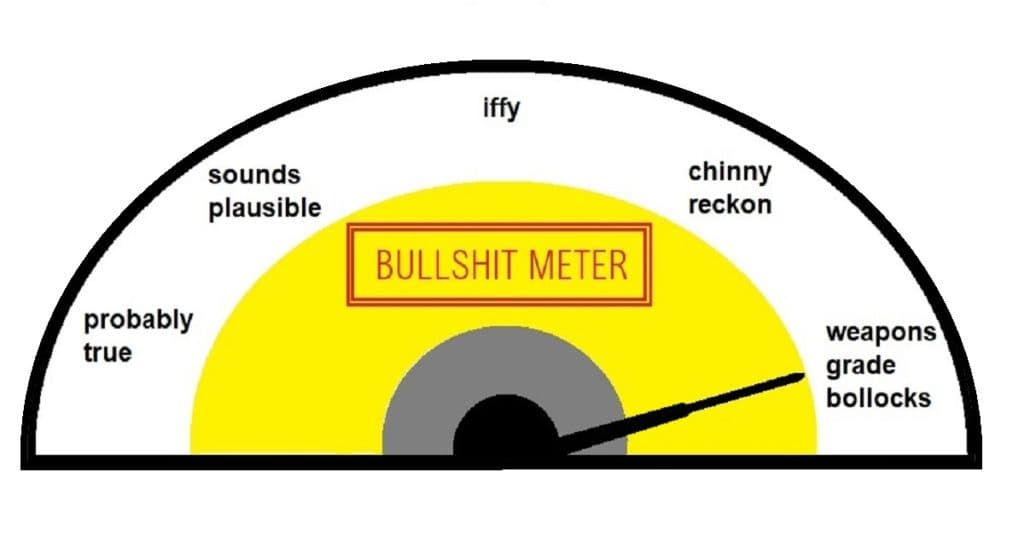
So How Can We Help Smell the Bullshit?
Sniff, Sniff. On the Trail of Truth…..
It’s a mad old world out there on the net isn’t it and hard to decipher anymore where the truth may lie. It’s so fucked up that we now assume articles are true when the fact checkers tell us that they aren’t. That’s not just howling mad, it’s fully barking bonkers.
We understand that as individual, ephemeral, dogs we can’t possibly find out all the information we need at first hand. We have to rely on input from other sources: parents, teachers, friends, newspapers, TV, social media. But a lot of that input is contradictory. Some sources are clearly more reliable than others.
In these dystopian times, the ability to tell good info from bad is more vital than ever. So how do you sort the golden nuggets from the weapons grade bollocks?
Well, we are generally sceptical hounds in our woods and this helps keep us grounded. Scepticism (from Greek skepsis, “inquiry, doubt”) involves suspending your belief and disbelief and looking at things neutrally. Scepticism means checking, comparing, investigating – essentially, asking questions.
Some of them that we regularly ask include:
- What is propaganda, it’s history and current form? (A good place to start may be here.)
- Where has the information come from? Who owns the agency reporting it? What may their agenda(s) be?
- What is the language of the article like? Is it clear, and easy to understand?
- Is the use of language fresh and original, or cluttered with clichés and buzzwords? Is the meaning clear and unambiguous? Does the author or speaker illustrate their point with relevant examples? Does the piece contain any obvious inaccuracies, or things you know or suspect to be untrue? Is it internally consistent?
- Can the author actually back up their points with evidence from a reputable third-party source? Do these responses, individually or collectively, cast any doubt on any of the claims in the original article or post?
These are obviously the very grown-up, level-headed, rational questions:
- people pointing out factual errors
- highlighting contradictory evidence
- logical flaws
- providing relevant context
But to become a real bullshit detector, we think us hounds needs something else to add to this mix. This is basically a mixture of cynicism, shrewdness, perception and, importantly in our view, intuition.
With so many media forms and so much utter bollocks flying around, the need for us to trust our instinct, how it feels deep down in our bones, has perhaps never been more important.
Finally, we are super wary of people who tell us that they know the absolute truth. For us, the truth is that there are many truths and we all construct our own. So, let’s get sniffing and seek it out.
